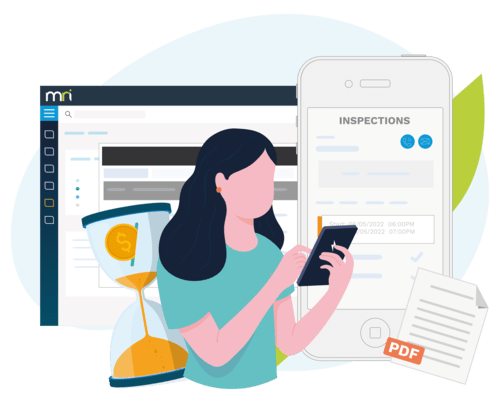Property management KPIs you should track
In the competitive landscape of property management, tracking the right Key Performance Indicators (KPIs) is crucial for optimising operational efficiency and enhancing tenant satisfaction. Effective KPI monitoring provides valuable insights that enable property managers to make informed decisions, streamline processes, and ultimately, improve overall performance. In this blog, we look into the most significant metrics that property managers should monitor to ensure they are meeting their objectives and addressing the needs of their tenants. By understanding and leveraging these essential KPIs, you can drive success and foster a positive living experience for residents.
Introduction to Property Management KPIs
Property management KPIs are crucial, quantifiable metrics used to evaluate and track the performance of property management companies (PMCs). These indicators offer a clear and measurable way to assess various aspects of different types of property management, including operational efficiency, financial health, and tenant satisfaction. By monitoring these KPIs, property managers can gauge the success of their objectives, projects, and team performance over time. These metrics provide valuable insights that inform decision-making, highlight areas for improvement, and drive strategic planning to enhance overall effectiveness and achieve desired outcomes in property management.
Why KPIs are Crucial in Property Management
KPIs are essential in property management because they provide a clear, quantifiable measure of whether a company is progressing toward its strategic goals. By regularly monitoring these metrics, property managers can effectively track portfolio health, resident satisfaction, and operational efficiency. This ongoing evaluation helps in identifying potential issues before they escalate, ensuring timely interventions to maintain smooth operations. Conversely, KPIs also highlight areas of success, allowing managers to replicate effective practices and strategies.
Financial KPIs for Property Management
1. Net Operating Income (NOI)
Measures a property’s profitability by subtracting operating expenses from total revenue, excluding taxes, loan payments, capital expenditures, depreciation, and amortisation. This metric provides insight into a property’s operational efficiency and profitability, independent of financing and tax factors.
2. Occupancy Rate
Indicates the percentage of rental units occupied by tenants. A 100% occupancy rate means all units are leased, while 0% means none are. Tracking this KPI helps evaluate leasing strategies and tenant demand trends, informing pricing and marketing decisions and aiding in maximising rental occupancy rates.
3. Rental Arrears
Refers to tenants who have missed rent payments or paid late. Monitoring this KPI is essential for assessing financial health and tenant reliability. High arrears may indicate issues with tenant management or financial stability, necessitating timely action to address payment problems and reduce revenue loss.
Operational KPIs for Property Management
1. Tenant Retention Rate
Measures how effectively property managers maintain long-term tenant relationships. It reflects the percentage of tenants who renew their leases versus those who move out. A high rate indicates strong tenant satisfaction and effective management, reducing turnover costs and the need for new renters.
2. Maintenance Costs
Includes all expenses related to property upkeep and repairs, such as fixing leaks, replacing air filters, and landscaping. These costs, deducted from rental income when incurred, are vital for maintaining property value and tenant satisfaction. Monitoring them helps property managers budget efficiently and find cost-saving opportunities without sacrificing service quality.
3. Response Time for Service Requests
Measures how quickly maintenance and repair issues are addressed. Prompt resolution is key to tenant satisfaction and operational efficiency. Delays can lead to tenant dissatisfaction and disrupt maintenance schedules, highlighting the importance of efficient work order management.
Asset Management KPIs
1. Return on Investment (ROI)
Measures profitability by comparing the returns from an investment to its cost. This backward-looking metric helps assess the effectiveness of investment decisions by evaluating the financial gain or loss relative to the initial investment.
2. Capitalisation Rate (cap rate)
Assesses the potential return on a real estate investment. Calculated by dividing a property’s Net Operating Income (NOI) by its current market value, the cap rate is expressed as a percentage. It is a useful ratio for comparing different investment opportunities and evaluating potential returns.
3. Property Valuation
Determines the fair market or present value of a property. Methods include using book values, discounted cash flow analysis, option pricing models, or comparables. Accurate valuation is essential for making informed investment decisions and understanding asset value.
Risk Management KPIs
1. Compliance Rate
Property management compliance plays a pivotal role in the success and sustainability of any property management business. As the real estate industry continues to evolve, regulatory requirements and legal complexities are becoming more stringent. Failing to adhere to these compliance standards can lead to severe consequences for business owners, property managers and landlords.
2. Insurance Coverage
Insurance coverage for property managers is essential due to the risks associated with managing rental properties, such as apartments, condos, or commercial buildings. This coverage protects property managers against potential liabilities and financial losses arising from their management activities, ensuring they are safeguarded against unforeseen incidents.
3. Safety Incident Rate
Tracks the frequency and severity of incidents occurring within properties. As a lagging indicator, it reflects past performance and helps assess how well safety protocols are working. While it only measures past incidents, monitoring this rate is crucial for evaluating safety performance and identifying areas for improvement.
Leveraging Technology for Effective KPI Tracking
Property Management Software Solutions
Property management software, such as MRI Property Management X, automates KPI tracking by recording and reporting metrics efficiently. This technology eliminates the need for manual calculations and generates reports or dashboards, saving time and reducing errors for property managers.
Data Analytics and Reporting
Effective property management systems offer customisable reporting and data analytics. MRI Property Management X provides a range of pre-built and customisable reports, and handles property accounting and investment management, integrating with existing systems to offer a comprehensive data view.
Best Practices for Implementing and Monitoring KPIs
Setting Realistic Targets
Identify the KPIs you want to track, assess your current performance, evaluate competitors, and define clear objectives to set realistic targets.
Regular Performance Reviews
Regular performance reviews offer a platform for property managers to analyse portfolio performance, identify strengths and weaknesses, set goals, and develop improvement strategies.
Continuous Improvement
Continuous improvement involves regularly evaluating and refining KPIs to ensure they remain aligned with your business goals and adapt to changes in the business environment.
Conclusion
Effectively tracking and managing KPIs is vital for the success of property management. By leveraging advanced technology, setting realistic targets, and embracing continuous improvement, property managers can gain valuable insights into their operations, optimise performance, and enhance tenant satisfaction. Regularly monitoring financial, operational, asset management, and risk management KPIs ensures that you stay on top of key metrics, address potential issues proactively, and capitalise on opportunities for growth. Ultimately, a strategic approach to KPI management will not only streamline your property management processes but also drive long-term success and sustainability in a competitive market.
Property Management Software
Multi-discipline technology for property owners, investors and occupiers.

Contact MRI Software
To find out more about our innovative technology solutions designed to streamline key processes for property managers, contact the team at MRI Software today on 09 883 3196.
Experience the Future of Property Inspections with MRI Inspection Manager in Palace
Streamline your property management workflow with cutting-edge technology. Watch our on-demand webinar to see Inspection Manager in action—a powerful solution integrated seamlessly within MRI Palace, designed to make property inspections more efficie…

